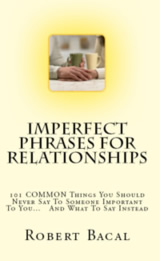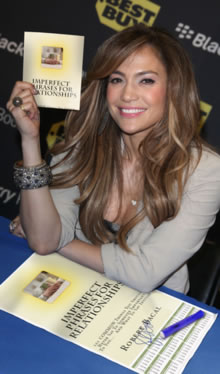Is Your Child Becoming A Praise Junkie?
By Michael
Grose
Editor's Summary: As a parent, are you aware of the difference between the effects of providing your child with encouragement over praise? See if you think you are praising your child too much. Maybe he can use more encouragement instead. Learn how to avoid over-using praise to develop your child's self-esteem.
Do you praise your child when he fulfils a basic bodily function? Do you praise your child for obeying the laws of gravity? Do you give praise for simple socialisation procedures that your child practises every day?
No, you say. Have you ever praised your child for finishing all his meal? Ever praised a child for staying on his bike or perhaps staying vertical on roller-blades? Ever praised a toddler for their terrific smile and fantastic manners?
In the last few decades parents in many parts of the world including the US. UK and Australia have enthusiastically followed the positive parenting teachings, but for some praise for a job well done has become like a nervous tic.
"You finished your meal. What a guy!"
"That's the best work I've ever seen!"
"You are such a clever little swimming girl."
"You used the toilet. Let's ring grandma and tell her what a clever girl your are!"
Sound familiar. Yes most parents are well aware of the notion of praise but are we going too far? Parents and teachers can praise children so much that it becomes a little like water off a duck's back and so lack any real meaning for kids. Too much praise can actually be demotivating for kids.
Before condemning or pushing the virtues of praise it is worth remembering why parents have been encouraged to use it in the first place. Its origins can be traced to the need to provide a child with a positive level of self esteem. The benefits of positive or healthy self esteem has been well-researched in recent years with one recent British long-term study indicating that self-esteem is a better indicator for positive outcomes for kids than intelligence or high skills levels.
Children gain their self-esteem from the messages that they receive and through their interactions with the world. The main developmental tasks for children under ten is to work out what they can do and how they fit into the world. Am I a chump or champ? is a question that concerns many children. Praise has been promoted as the predominant parental tool to boost children's self esteem. But like any tool it can be misused and indeed overused so that it becomes ineffective.
I have my concerns about praise as a successful parenting strategy. Yes, it can be overused however I have never met an adult who says that they can't cope because they were overpraised as a child. But too much praise can be demotivating. If a child is told everything he does is FANTASTIC then how will he ever really know when he has done something that really is fantastic. Sometimes mediocrity needs to be recognised rather than boosted to another level.
I also have a hunch that overpraising kids also makes them dependent on others for their self-esteem. I have seen kids brought up on lavish diets of praise always checking in with their parents and teachers about how they are progressing. Constant comments such as "Is this good, Mum? Did I do well, Dad?" are signs of praise-dependent kids. You may say does this matter? I am not sure, but I think the more kids depend on others for their feelings of self-worth the more likely they are to be open to peer-pressure later on. Peers replace parents as people to please.
Encouragement is a far more powerful esteem-building tool than praise and it doesn't have the adverse side effects. The differences are slim but important. Encouragement focuses on the process of what a child does whereas praise focuses on the end result. Encouraging comments focus on effort, improvement, involvement, enjoyment, contribution or displays confidence whereas praise concerns itself with good results. An encouraging parent gives children feedback about their performance but they ensure the feedback is realistic and they work from positives rather than negatives. An encouraging parent will note a child's efforts in toilet-training and recognise that mistakes are part of the learning process so they are not too fussed about the results. Praise however is saved for a clean nappy and a full potty. Encouragement recognises that a child is participating and enjoying a game while praise focuses on winning or a fine performance. Okay, the differences are academic and it may seem like splitting hairs but the results on the potty, in a game or even at the kitchen table should concern children more than they do adults. As soon as we become more concerned about results than children we move into areas of children's concern and out of areas of our concern. In short, praise is about control and encouragement is about influence.
In some ways kids can become saturated by encouragement just as they can by praise. And of course some children need more encouragement (or praise) than others. Certainly there are times in kids' lives just as there are times in adults lives when an encouraging word is needed more than others. But the art of encouragement (or praising ) is about giving it when it is needed and when it is due rather than giving it thoughtlessly and with little meaning.
The use of encouragement, like praise, requires some moderation and restraint for it to be effective. Just as a child who gorges himself on lollies will soon lose interest in something that was once a treat a child who is praised for every little deed will eventually need a veritable phrase book of positives to get him motivated.
Michael Grose
You can learn more about the wonderful art of encouragement so that you can continuously boost your child's self-confidence in Michael's ebook - Encouragement, which is available at WWW.Parentingideas.com.au .
Michael Grose is a leading parenting educator. He is the author of six books and over 300 parenting columns in magazines and newspapers in three contintents.
For more practical ideas to help you raise happy kids and resilient young people visit WWW.Parentingideas.com.au. While you are there subscribe to Happy Kids, Michael's free email newsletter and receive free report - sven ways to beat sibling rivalry.
Article Source: http://EzineArticles.com/
 It's a lot easier to learn from Imperfect Phrases For Relationships if you have the entire book in your hands. And, the price is low. The book is available in print, in Kindle format, and in an instantly downloadable version (PDF), which is great if you are in a hurry. Below are the links so you can get your own copy, or better yet, get two copies, one for each of you in your most important relationship.
It's a lot easier to learn from Imperfect Phrases For Relationships if you have the entire book in your hands. And, the price is low. The book is available in print, in Kindle format, and in an instantly downloadable version (PDF), which is great if you are in a hurry. Below are the links so you can get your own copy, or better yet, get two copies, one for each of you in your most important relationship.

